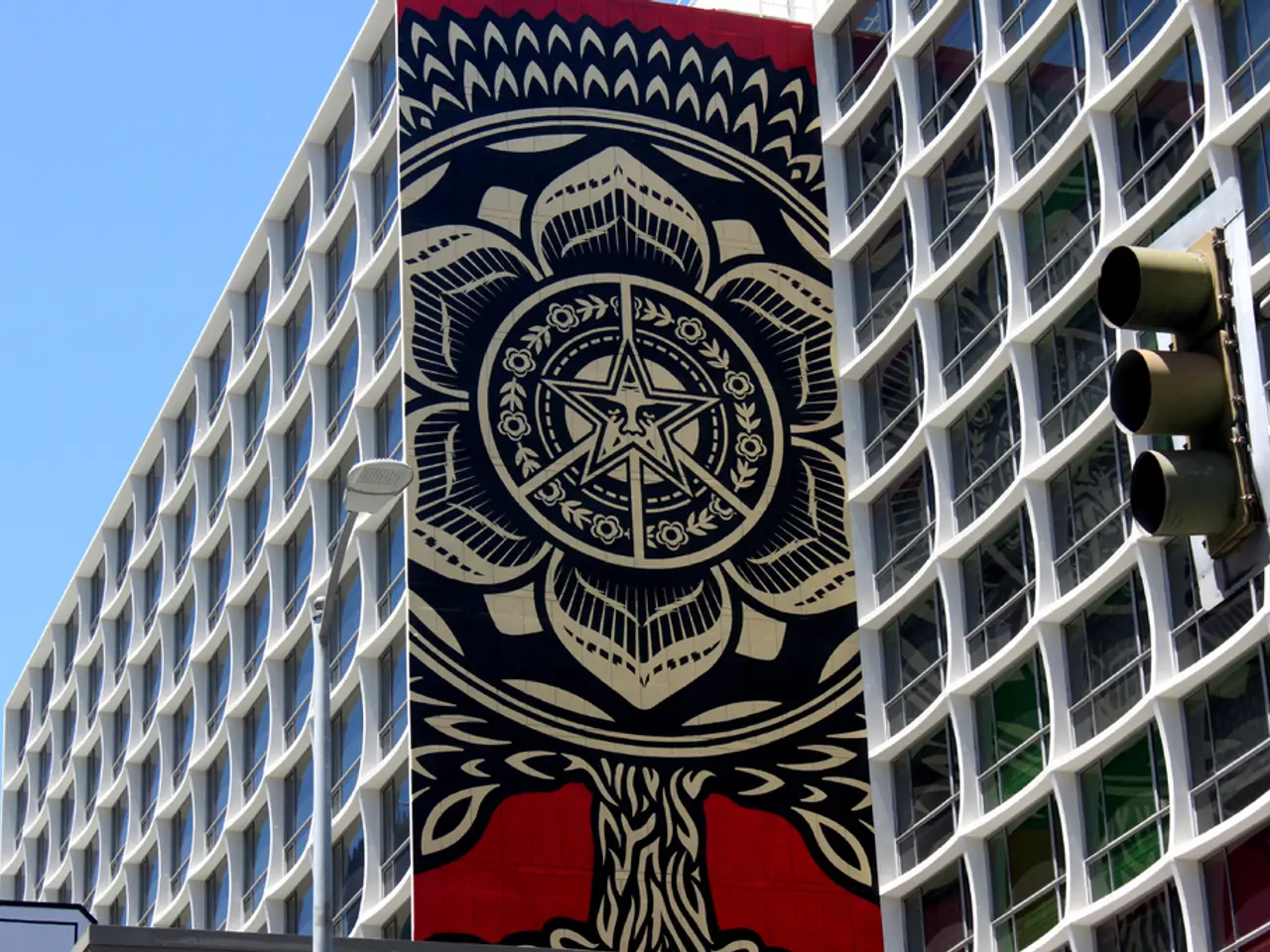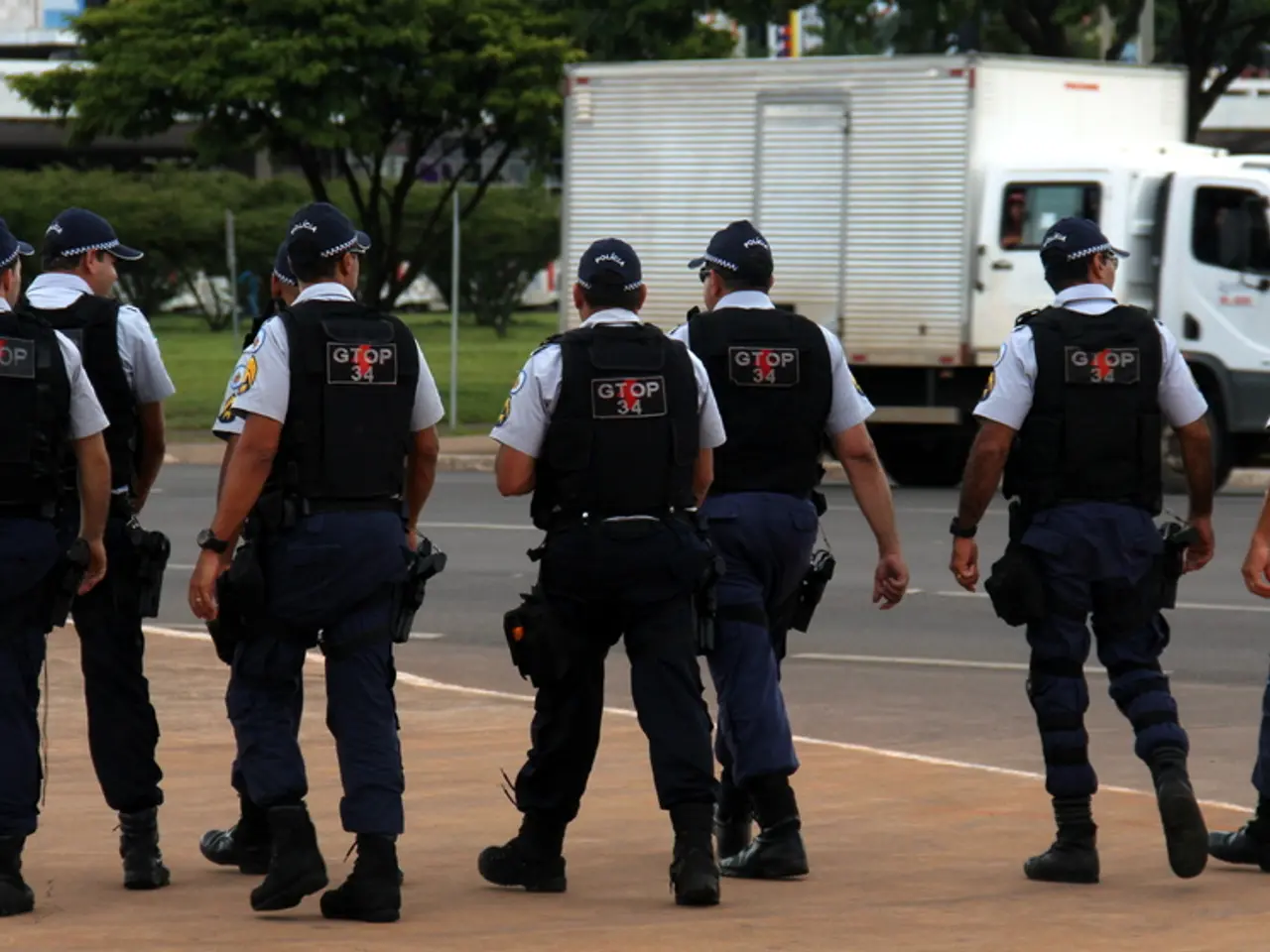Clergyman from Israel performs religious rituals at contested sacred location amid 33 casualties among humanitarian applicants in Gaza
Controversial Visit to Temple Mount Stirs Global Concern
A visit by Israeli Minister Itamar Ben-Gvir to Jerusalem's Temple Mount, a site of religious significance for both Judaism and Islam, has sparked international condemnation and fears of escalated tensions.
The visit, which took place on Tisha B'Av, the Jewish day of mourning commemorating the destruction of the ancient Temples, holds significant historical and political implications. This symbolic timing underscores the intense religious connection and nationalist sentiment involved in such visits.
Politically, Ben-Gvir’s visit was condemned for violating the historic Status Quo agreement that governs access and practices at the holy sites in Jerusalem. This understanding has traditionally sought to prevent unilateral changes that could inflame tensions between Israelis and Palestinians. France emphasized that such actions undermine international efforts toward a two-state solution and jeopardize Jordan’s custodial role over the Islamic holy sites.
Moreover, Ben-Gvir’s visit reflects a broader political shift under his policy, which has expanded Jewish prayer and expression of religious rituals at the site, allowing singing, praying, and prostration in areas previously restricted—a move that intensifies Palestinian fears of Israeli control over the site and escalates tensions.
The incident in Gaza, where 33 Palestinians seeking food aid were killed by Israeli fire, has further fuelled global criticism of Israel. Despite this, Israel's Prime Minister Benjamin Netanyahu's office stated that Israel would not change the norms governing the Temple Mount following the visit by the far-right Israeli minister.
The media coverage of the event was polarized, with some framing the visit as a legitimate religious act at Judaism’s holiest site, while others portrayed it as a provocational act that could exacerbate violence and instability. Reports criticizing media for amplifying Palestinian claims that Ben-Gvir prayed inside the Al-Aqsa Mosque, which was inaccurate, have also been noted.
In summary, the visit embodies the intersection of religious symbolism, nationalist politics, and fragile intercommunal agreements, fueling international criticism and potential regional escalation due to its challenge to the longstanding Status Quo arrangement and its impact on Israeli-Palestinian relations.
The incident highlights the complex intersection of military tensions, war-and-conflicts, politics, general-news, and crime-and-justice, as the visit to the Temple Mount by Israeli Minister Itamar Ben-Gvir has intensified regional conflicts and intensified fears of escalation. The visit, along with the incident in Gaza, has led to global scrutiny and criticism of Israel's actions and policies.






